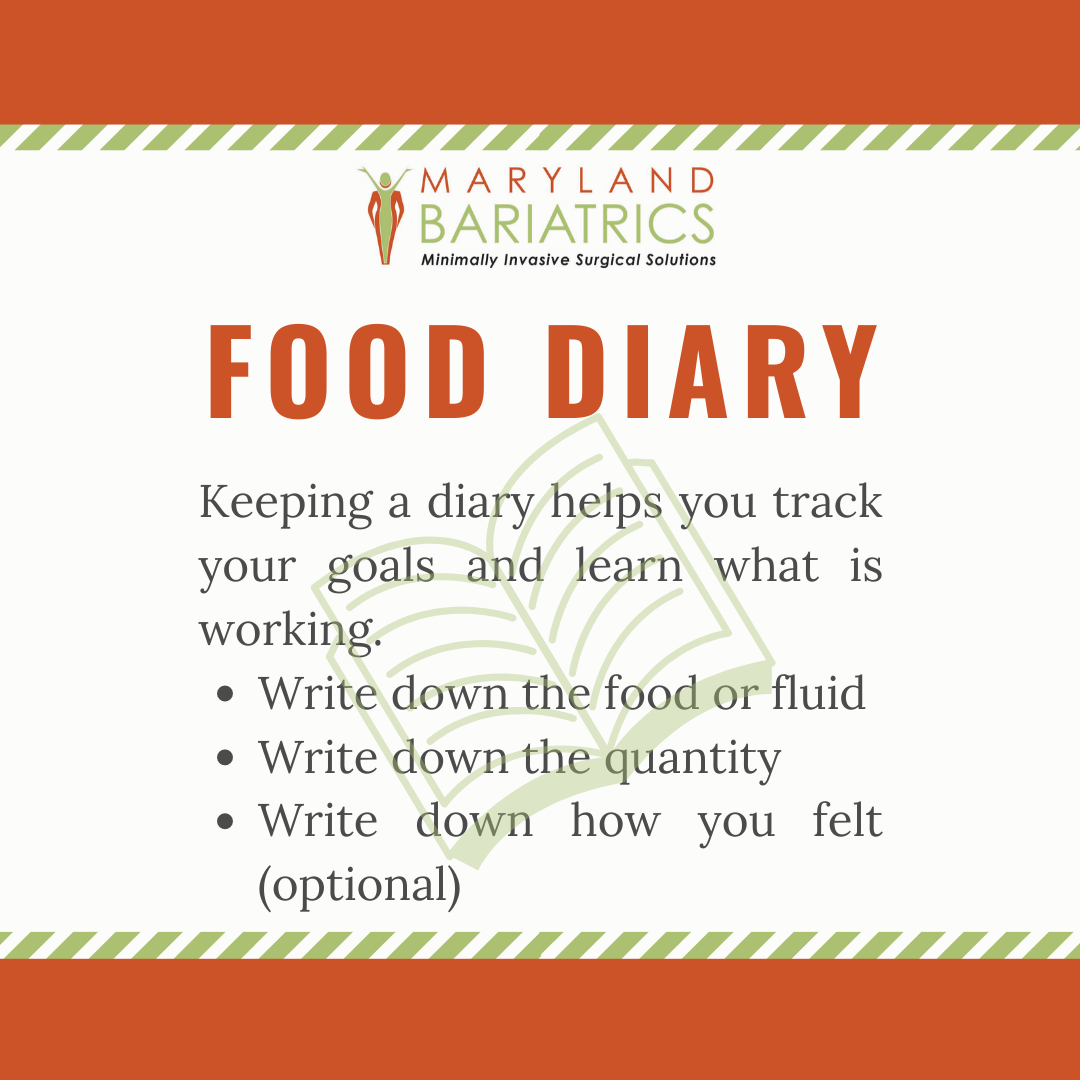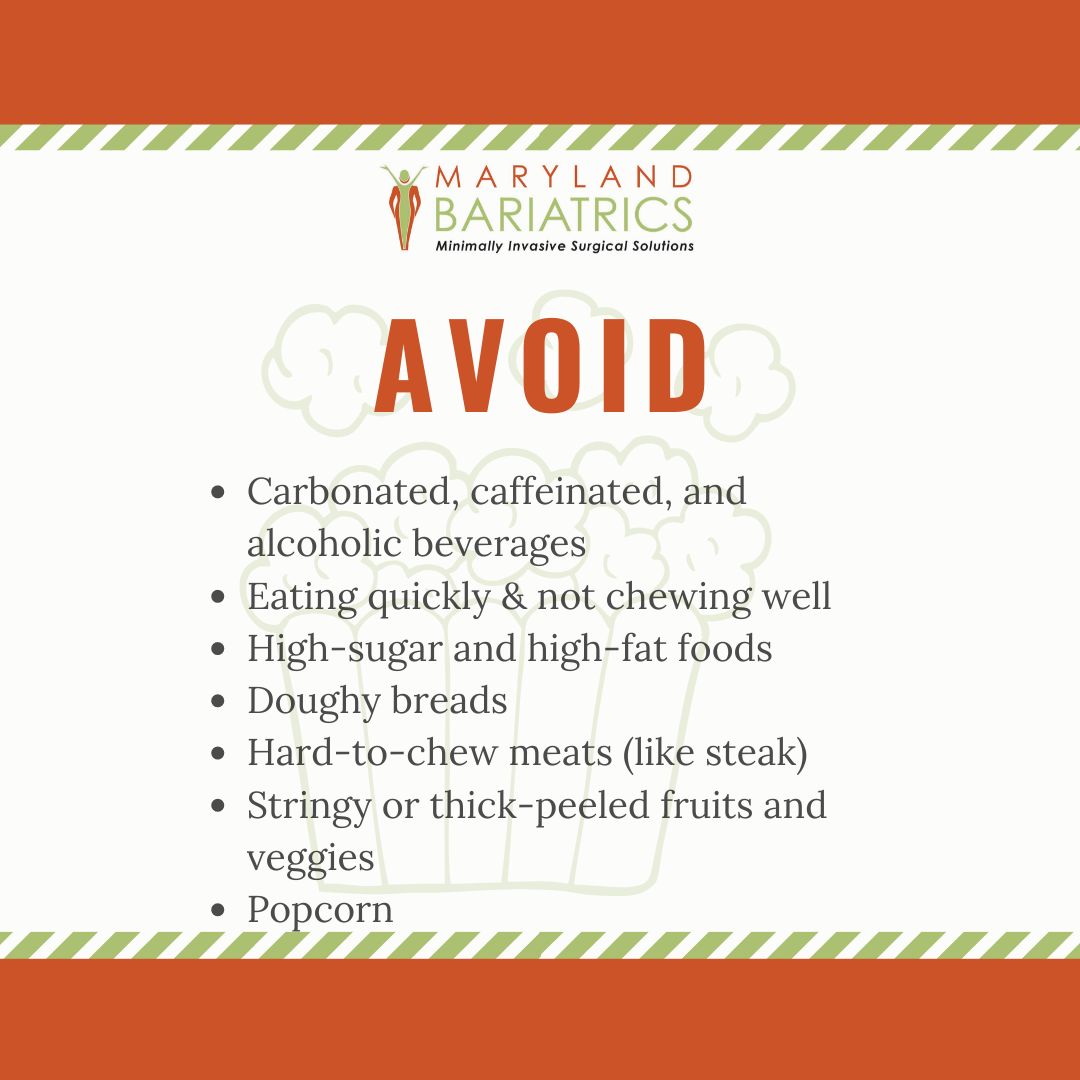The quality of your diet matters greatly after weight loss surgery. Bariatric nutrition describes the diet you follow in order to lose weight and maintain your health after surgery.
Let’s take a look at the general guidelines for bariatric nutrition.
How Does Bariatric Surgery Work?
Typically, bariatric surgery changes your system in two important ways to facilitate weight loss.
1) It’s restrictive. Weight loss surgery reduces the amount of food you can eat at one meal.
2) It’s malabsorptive. These surgeries also reduce the number of calories and nutrients you can absorb from food.
Combining these two properties results in dramatic weight loss in individuals who have been unable to lose weight in the past.
However, because your surgery limits the foods you can eat and the nutrients you absorb, your diet has to be very targeted. Not following your diet can result in complications.
What Will I Eat After Surgery?
Initially, you will begin with a clear liquid diet. Shortly, you will begin adding in thicker liquids.
Remember that you’re training your new digestive system to accept a very small amount of food. In the beginning, you will have to wait several minutes after just a couple of sips or bites of food before you can have more.

You can expect your diet to progress in these stages:
1) Clear liquids
2) Thicker Liquids
3) Soft Foods
4) Regular Foods
Following the instructions given to you by your surgeon and nutritionist are paramount. You do not want to have set backs or experience painful complications.
Let’s take a closer look at each stage.
Clear Liquids
During the time shortly after surgery, your main goal will be to stay hydrated. In the hospital, your nurses will provide you with the correct fluids to drink.
While your diet will expand to include more fluids and foods in the future, hydration will always be a goal for you to meet.
Dehydration should be avoided. Signs of dehydration include: lightheadedness, dizziness, and darker colored urine.
After a day or two, you will likely add protein shakes to your diet in order to help you meet your protein goals. You will need to sip these very slowly.
Your medical team will advise you on how to select a protein shake that you like that also meets your nutritional goals.
Begin keeping a food and fluid diary to help you track your goals.
Thicker Liquids
Usually between 10-14 days after surgery, though this can vary by individual, you will begin to add thicker liquids to your diet.
These will add to the protein shakes that you’re already using. However, you can now introduce some more variety.
These foods will include things like: fat-free Greek yogurt, cottage cheese, part-skim ricotta cheese, tofu, protein shakes and powders, unsweetened applesauce, soft/pureed banana, smooth hot cereals like oatmeal or cream of wheat, sugar-free pudding.
During this stage, you will want to make sure that you’re still meeting your fluid goals. A good way to do this is to make sure that you are drinking between meals.
Focus on meeting your protein goals. This may mean skipping items like applesauce in favor of high protein foods like Greek yogurt.
Stop eating if you feel pain or nausea. Make sure to record this in your food journal.
Space your meals out throughout the day, aiming for about 6-8 meals a day.
Softer Foods
A key component of bariatric nutrition is supplements. Because you cannot eat as much food, your diet may prevent you from getting all the nutrients you need.
For this reason, you will be prescribed a supplement regimen tailored to your needs. Most supplements will include a multivitamin, vitamin B12, calcium and vitamin D, and those to meet your individual needs.
While you cannot swallow pills, you will be given other options to accommodate your needs. Importantly, you will have to take these supplements for the rest of your life.
This next part of your diet will see you through until your stomach has healed, and you can start consuming more regular foods.
During this stage you can expect:
-
- To continue to make hydration a priority
- To continue to have protein shakes be a part of your diet
- To continue to log your food and fluids in a journal
- To focus on your protein goal
- To add new foods to your diet, including: chicken or turkey, fish, eggs or egg whites, veggie burgers, beans, tomato sauces, well-cooked vegetables without skin or peels, reduced-fat/light cheese, avocado, smooth nut butters, light mayo or dressings, oils.
- To incorporate spices and flavors to make your diet more interesting and palatable.
During this stage of bariatric nutrition, you are training yourself to learn how to eat again. This will prepare you for your lifelong diet.
Keep in mind that you should be chewing your food until it is completely soft. Eat very slowly.
You will need to be diligent about maintaining your hydration and making sure that you’re eating regularly throughout the day.
If a food gives you trouble, wait two or three weeks before trying it again, and speak with your doctor.
The Forever Stage: Regular Foods
Eventually, you will begin eating mostly regular foods. How long it takes for you to progress to this stage depends on many factors.
Your surgeon, nutritionist, and other members of your team will help guide you toward this transition. However, you can expect to transition to this stage somewhere between 5-8 weeks after surgery.
In this stage you can expect:
-
- To maintain your hydration goal (approximately 2 liters of fluid)
- To log your foods & fluids
- To meet your protein goal
- To take your supplements, perhaps even transitioning to pills, if possible
- To gradually begin to tolerate more and different types of foods
- To change your diet over time
- To focus on balance
Lifestyle Changes & Bariatric Nutrition
An important part of your bariatric journey will be to make lifestyle changes. While much of this is related to the foods you eat, some of it will include other parts of your life.
Physical activity will be an important component of your life. While your goal may never be to become a serious athlete, lifelong physical activity is important.
Try to incorporate physical activity into your everyday life. This can mean taking the stairs instead of the elevator, parking further away, walking your dog, and tracking your steps every day.
Include your family—some opt to go on walks together when the weather is nice. You can engage your partner and children or grandchildren in games, dancing, or swimming.
Household chores can be a good way to incorporate exercise into your life. This is especially true for outdoor chores.
The benefits of physical activity are numerous. Apart from helping you lose weight, they can also boost your mood, help you sleep better, boost your energy, and positively impact your cardiovascular and bone health.
Another important lifestyle change will be seeking out support from others who have had weight loss surgery. These groups can be tremendously helpful at navigating your way of life.
Problems and Things to Avoid
During this journey, you may encounter issues, and your team will help you manage them. However, there are things you can avoid, helping you steer clear of some common problems.
There are many foods that bariatric patients are encouraged to avoid. In the future, it may be possible for you to incorporate some of these foods into your diet.

However, if you experience problems like constipation, diarrhea, nausea, or pain—you may want to consider that some of the foods you’re eating are contributing to your problem.
For example, some bariatric patients can incorporate carbonated beverages into their diets several months after surgery. Some never do, so it’s important to trust your body.
What Are the Symptoms of Dumping Syndrome?
This condition is one common result of poor bariatric nutrition. Dumping syndrome happens when your stomach empties too quickly into the first part of the small intestine.
You may experience cramping or pain, nausea, vomiting, diarrhea, rapid heartbeat, sweating, flushing, and/or lightheadedness.
How Do You Fix Dumping Syndrome? Does Dumping Syndrome Ever Go Away?
Dumping syndrome can be helped by decreasing the size of your meals, eating more slowly, and considering the types of foods in your diet.
You can also avoid drinking fluids at mealtimes. Careful management of your symptoms can help dumping syndrome go away get better within months.
Making changes to what and how you eat can help better this annoying and painful problem.
Bariatric Nutrition at Maryland Bariatrics
We hope that this explanation of how you will eat after surgery is helpful. If you’re interested in bariatric surgery, we encourage you to sign up for an informative Bariatric Introductory Class.
These classes are taking place online via the gotomeeting.com platform for the time being. Reach out to our office by calling (301) 965-0546 or clicking here.





